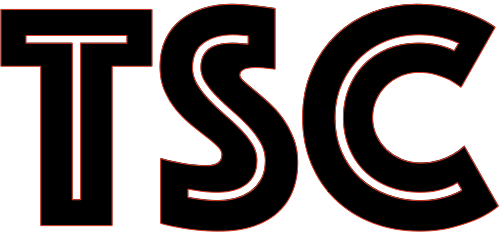
When you make purchases through our links we may earn a small commission.

Photo Credit: Dainis Graveris
Unveiling the Dark Truth: America's Prison System—An Exploitative Extortion Machine
The American prison system was initially established with the intention of protecting society, rehabilitating offenders, and ensuring justice is served. However, over time, it has become clear that the system has failed us. Instead of effectively addressing crime and fostering rehabilitation, our prisons have morphed into tools of extortion, perpetuating a cycle of punishment, dehumanization, and profit. This blog post delves into the ways in which our prison system has failed us and transformed into a system that extorts the American people.
Over-Incarceration: The Business of Imprisonment
The United States has the highest incarceration rate in the world. The ‘war on drugs,’ mandatory minimum sentencing, and harsh sentencing policies have contributed to a significant increase in the prison population. Rather than focusing on rehabilitation and addressing the root causes of crime, the system has prioritized punishment and imprisonment as the primary solutions.
The privatization of prisons has further exacerbated the problem. For-profit prison corporations operate with a profit-driven motive, leading to a perverse incentive to keep the prison beds filled. This profit-driven approach incentivizes the expansion of the prison population and perpetuates the cycle of incarceration, often without providing effective rehabilitation programs.
Exploitative Prison Labor
In many prisons, incarcerated individuals are forced to work under exploitative conditions, often receiving meager wages or no compensation at all. This practice takes advantage of cheap prison labor, benefiting corporations and governmental agencies. While proponents argue that prison labor provides skills and reduces idleness, the reality is that it often exploits vulnerable populations and perpetuates cycles of poverty.
Furthermore, the lack of labor protections for incarcerated individuals undermines the rights and dignity of those behind bars. By using prison labor to generate profit for private corporations and government agencies, the system continues to extort the labor of the incarcerated population while hindering their chances of successful reintegration into society.
Financial Exploitation: The Cost of Incarceration
The financial burden of incarceration falls not only on the incarcerated individuals but also on their families and the American taxpayers. The cost of housing, feeding, and providing healthcare for prisoners has skyrocketed, consuming a significant portion of state and federal budgets. Taxpayers foot the bill for a system that fails to deliver effective rehabilitation and reintegration, perpetuating a cycle of crime and recidivism.
Moreover, various fees and fines imposed on incarcerated individuals further exploit them financially. Charges for medical care, phone calls, and even basic amenities within prisons place an undue burden on those already stripped of their freedom. The financial exploitation extends beyond prison walls as well, as the collateral consequences of incarceration, such as limited employment opportunities and reduced earning potential, impact individuals long after their release.
Racial Disparities and Social Injustice
The prison system disproportionately affects communities of color, perpetuating systemic racism and social inequality. African Americans and Hispanics are incarcerated at significantly higher rates compared to their white counterparts, often facing harsher sentences for similar offenses. The biased application of laws, discriminatory policing practices, and socioeconomic disparities contribute to this injustice within the system.
The over-policing and over-incarceration of marginalized communities not only disrupts families and neighborhoods but also perpetuates a vicious cycle of generational poverty and criminalization.
The current state of the American prison system is deeply flawed, failing to fulfill its intended purposes and instead operating as a tool to extort the American people. Over-incarceration, exploitative prison labor, financial exploitation, and racial disparities are just a few examples of how the system has gone astray.
Reforming our prison system is essential. We must shift our focus from punishment to rehabilitation, investing in evidence-based programs that address the root causes of crime. Ending the privatization of prisons, providing fair wages for incarcerated labor, and eliminating predatory fees and fines are crucial steps toward justice.
Moreover, addressing systemic racism, inequality, and social disparities must be at the forefront of prison reform efforts. By acknowledging the failures of the current system and advocating for change, we can strive for a future where our prisons genuinely serve justice, rehabilitation, and the betterment of society as a whole.
We value your perspective on the failing prison system and its impact on society. Have you or someone you know been personally affected by the flaws of the system? Do you believe there are alternative approaches that prioritize rehabilitation over punishment? Join the discussion by leaving a comment below and let’s explore how we can work towards a more effective, humane, and just prison system that truly serves the needs of our communities. Your insights and experiences can contribute to a meaningful dialogue on this critical issue.


















